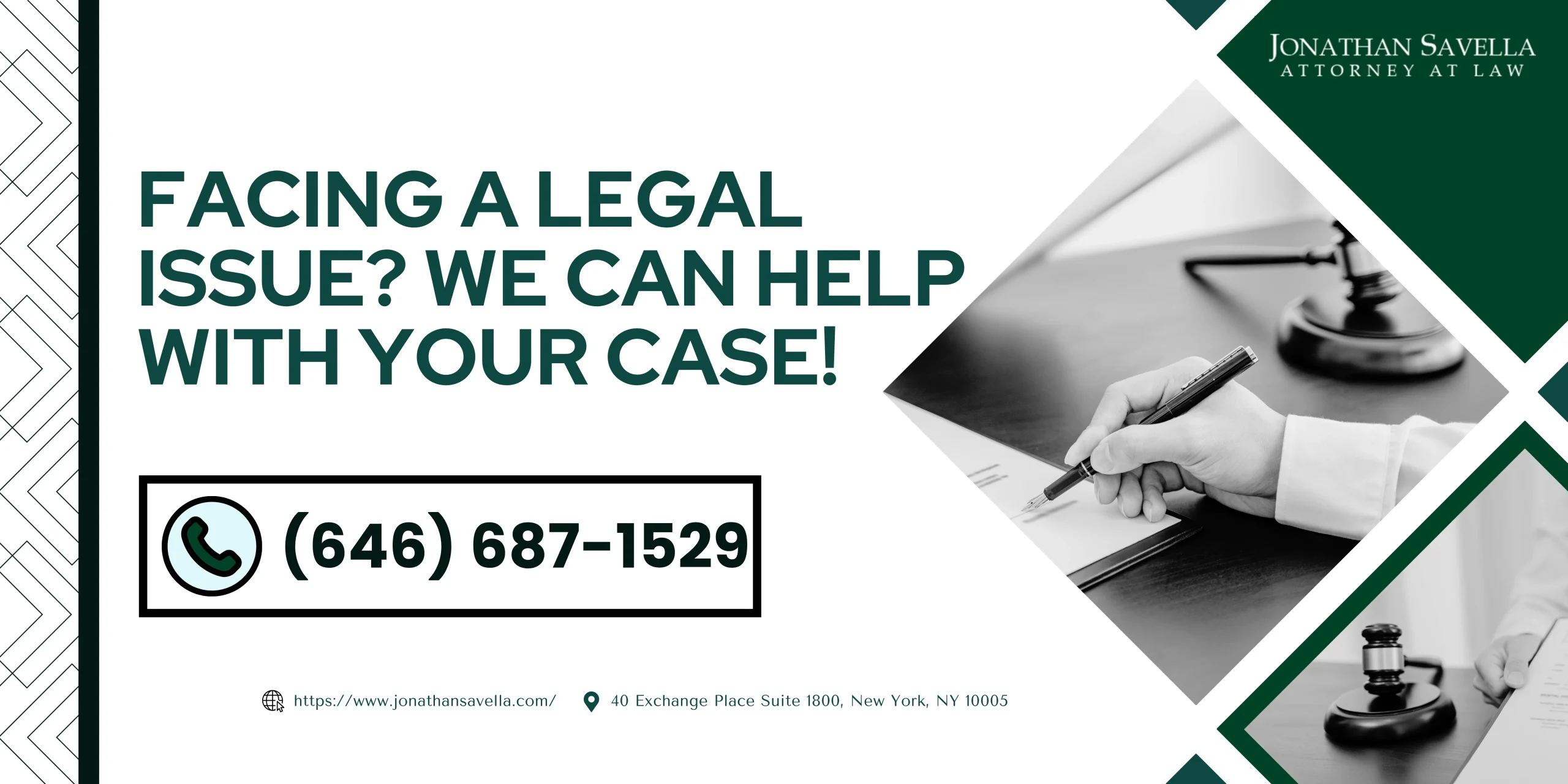NYC Extradition Lawyer
NYC Extradition Attorney
Extradition is a complicated legal process. Specific guidelines must be followed, and you have the right to a hearing as well as legal counsel. If you or a family member are facing this situation, contacting an NYC extradition lawyer is recommended. The Law Office of Jonathan Savella can review your circumstances and develop a solid defense strategy to fight for the most favorable outcome possible.

Understanding Extradition
When someone is accused of, arrested for, or convicted of a crime, leaving the jurisdiction does not protect them from the consequences. Extradition is the legal process of one jurisdiction handing over a person to authorities in another jurisdiction. The process can be time-consuming and expensive for authorities, so jurisdictions may not always agree to extradition for every crime. In the case of serious crimes like treason, murder, and rape, extradition is likely to happen.
Extradition generally happens between two U.S. states, which is called interstate rendition or interstate extradition, or between the U.S. and another country, known as international extradition. The basic idea is the same for both, but the requirements and procedures can vary.
The Extradition Process
The court where the person is being charged issues a warrant when they have a good reason to believe the person has fled, such as not showing up for trial. This is entered into criminal databases that law enforcement can use to see warrants from other jurisdictions. In some cases, law enforcement may find the fugitive through investigation, or they may find them when the person interacts with law enforcement, like being arrested.
At that point, law enforcement will contact the jurisdiction where the warrant is, and authorities there can formally request the person be returned. For less serious crimes, officials may not ask for their return, especially if the person has been arrested in the jurisdiction to which they fled. When the first jurisdiction does request extradition, the fugitive has the right to an extradition hearing, or they can waive that right and consent to extradition.
However, if the person committed a crime in the jurisdiction they fled to, courts there can often prosecute them and have them serve their sentence before they return them to the jurisdiction requesting their extradition. The more complex the situation, the stronger it is advised to hire experienced legal counsel.
Extradition Hearing
At an extradition hearing, a court decides if the fugitive should be sent back to the jurisdiction requesting the extradition. A judge reviews the evidence against the person, but in this case, the court primarily seeks evidence that the person is the one named in the warrant, not whether or not they actually committed the crime with which they were charged.
If the judge determines this is the person the original jurisdiction is looking for, and they are extradited, then they will continue where the original legal process halted. If they fled before they were arrested, they may now be arrested. If they fled during the trial, the trial may recommence, or they may have been found guilty in their absence.
Interstate Extradition (Rendition)
In the U.S., state authorities are obligated to return the person to the state where they are facing charges. However, some states do not extradite for misdemeanors or other minor charges.
International Extradition
While the process for international extradition is more or less the same as it is between states, extradition between countries can be significantly more complicated. Depending on the charges, the person’s nationality, and the relationship between the U.S. and the country requesting extradition, the process can become more involved.
Some additional considerations in international extradition are whether the act for which the person is accused is a crime in the U.S., as well as whether the person is likely to suffer human rights violations, such as torture or the lack of a fair trial if they are returned to the requesting country. It may also be taken into account whether the person will face persecution due to their race, religion, or political affiliation.
Defense Strategies
Defending against extradition requires a different approach from defending against criminal charges. The main areas to focus on for extradition defense are:
- The legality of the extradition request documentation and procedures
- Whether the person was actually charged with a crime in that jurisdiction
- Whether the person is the same as the one named in the warrant
- Whether the crime qualifies for extradition
FAQs
Q: What Are the Requirements for Extradition?
A: The requirements for extradition include a formal request, such as an indictment, from the original state or country that includes proof of the criminal case, an extradition agreement with the jurisdiction, confirmation that the crime they are facing is a crime in both jurisdictions, and sufficient evidence to show the person is the same as the one named in the warrant. An experienced extradition attorney can identify whether all the legal requirements are satisfied.
Q: On What Grounds Can a State Refuse Extradition?
A: A state can refuse extradition if there is insufficient evidence to support the request, the crime is not illegal in the state where the person currently is, the person is unlikely to be the person in the warrant, the person was already tried for the crime (double jeopardy), or the proper procedures are not followed. In addition, some states refuse to extradite for misdemeanor or other minor offenses.
Q: What Does Extradition to NY Mean?
A: Extradition to NY means that the state of New York is requesting to have a person returned from whatever state into which they fled. States are obligated to surrender a person to the requesting state as long as there is sufficient evidence of a serious crime, the person’s identity is confirmed, and the proper legal processes and procedures are followed.
Q: What Crimes Can You Be Extradited for?
A: You can be extradited for most serious crimes, including murder, rape, kidnapping, burglary, terrorism, arson, and other felonies. In addition, you may be able to be extradited for some serious misdemeanors. Minor crimes are less likely to lead to extradition, however, simply because of the cost and resources required to extradite someone.
Contact an NYC Extradition Lawyer
The Law Office of Jonathan Savella knows how much is at stake in an extradition case and is ready to put his knowledge, skills, and resources to use in your defense. Our NY extradition lawyer has extensive experience in federal and state laws regarding extradition and can offer the fierce advocacy you need to protect your rights and interests. Reach out to our office today to schedule a consultation and learn your legal options.



